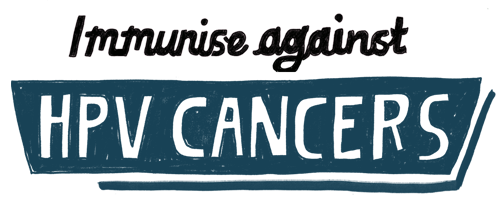ANSWERS TO SOME COMMON QUESTIONS PEOPLE HAVE ABOUT HPV AND THE HPV VACCINE
THE HPV VACCINE
Who is eligible for free immunisation?
The HPV vaccine, GARDASIL®9, is funded for anyone aged 9 to 26 years. A charge applies for all others outside this age range.
How does the HPV vaccine work?
The vaccine works by causing the body to produce its own protection (virus-fighting antibodies) against the HPV types contained in the vaccine.
How long will the HPV vaccine protect my child?
The vaccine has been clinically tested and shown to be effective in helping prevent HPV-related cancers caused by the HPV types in the vaccine.
The vaccine is expected to offer long-lasting protection.
Why should my child get the HPV vaccine as soon as they can?
To get the most benefit from the vaccine, immunisation should occur prior to exposure to any of the nine HPV virus types included in the vaccine.
How is the HPV vaccine given?
For children 9 to 14 years of age:
The vaccine is given as a series of 2 shots in the upper arm, with the second dose being given between 5 to 13 months after the first.
However if they get it when they are aged over 15 years old:
3 doses are required with the last dose recommended to be given 6 months after the first. All 3 doses should be given within a 1 year period.
Does the HPV vaccine have any side effects?
Like any vaccine, there can be side effects. The most common include pain, redness, swelling, itching and bruising at or around the injection-site as well as headache, fever, nausea, dizziness and fatigue.
For the most part these reactions are mild and usually improve or disappear within a few days. If you are worried by any side effects, contact your doctor.
HUMAN PAPILLOMAVIRUS (HPV)
How can you tell if you have HPV?
Sometimes people develop visible signs - that is, genital warts. Otherwise, most people who have HPV do not show signs or symptoms. This means that they can pass on the virus to others without knowing it.
An abnormal smear test may also show that you have HPV.
Do condoms stop HPV?
HPV is found in certain areas of the skin that aren't always protected by condoms. So even if you are careful you can still catch the virus.
If someone is already sexually active, can they still benefit from the HPV vaccine?
If they have already been involved in sexual activity they may have already come into contact with HPV. However, they may also benefit from immunisation, since they may not yet been exposed to all of the nine HPV types that are covered by the vaccine.
What cancers can the HPV virus cause?
Research has shown that HPV infection is the main cause of a number of cancers including: cervical, vaginal and anal cancers.
Do you have more specific information for adults getting the vaccine?
We sure do.
Head over to bestshot.co.nz for more info.

